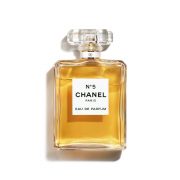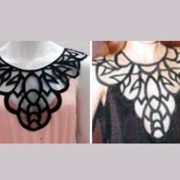New Israeli Supreme Court Decision on Trademark Infringement by Parallel import
Is the act of parallel import beverages from Ukraine to Israel, without the consent of the Israeli trademark owner (who differs from the rights holder in Ukraine), considered trademark infringement? The Israeli Supreme Court, through a distinctive judgment by Judge Stein, tackled this query.
In simpler terms: In situations of split ownership, where different owners possess the same mark in different countries, does bringing identical products from Country A to Israel under the same mark, without the approval of the Israeli trademark holder, amount to trademark infringement?
The Facts:
Yafora Ltd produces and markets soft drinks in Israel. Yafora Ltd owns the “Schweppes” trademark in Israel and in the territory of the Palestinian Authority.
In 2006, Yafora acquired the trademark “Schweppes” in Israel from Cadbury Schweppes PLC. “Schweppes” beverages, marketed by Yafora Ltd in Israel, are manufactured by Yafora in Israel.
Ben Shlush Ltd imports various products from abroad into Israel in a parallel import process. Products imported by a Ben Shlush include food and beverages.
The parlell import scheme can be presented as follows:

On March 12, 2019, Ben Shlush Ltd imported the first shipment of beverage bottles with the “Schweppes” trademark, which they allegedly purchased from Supreme Trading LLC.
This company purchased the beverages from official resellers, who purchased them from the beverage manufacturer in Ukraine, European Refreshments Limited. Coca-Cola owns the rights to the “Schweppes” trademark in Ukraine through its subsidiary ERL.
Ben Shlush received a cease-and-desist letter from Yafora on April 29, 2019, stating that the marketing of Ukrainian beverages under the “Schweppes” trademark infringes on Yafora’s Israeli trademark registration “Schweppes”.
In light of the above, Ben Shlush filed a motion for a declaratory judgment asking the District Court to declare that Schweppes’ beverages imported from Ukraine, which were purchased from ERL, were lawful and did not infringe on Yafora’s Israeli trademark “Schweppes”.
The District Court Decision:
On October 19, 2020 the District Court has accepted the motion for a declaratory judgment and ruled that the fact that Yipora manufactures its products in Israel and does not import them to Israel from abroad does not deprive Ben Shlush of the status of a legitimate parallel importer.
In this context, it was pointed out that a certain difference between the products, those of the owner of the trademark rights and those imported in parallel import from another country, does not detract from their originality for the purpose of protecting the parallel import, whenever the product manufacturer holds the trademark rights in that country.
Along with this legal determination in principle, it was determined that Yafora in any case did not prove to the required extent its factual claim regarding the difference between the products.
Split Ownership of the Same Brand
The district court ruled that the legal doctrine concerning the exhaustion of intellectual property rights also applies in situations of territorial split ownership of trademark rights.
In this context, the district court has argued that the parallel import was a commercial risk that Yafora had to consider while acquiring the rights to the “Schweppes” trademark from Cadbury – in view of its awareness of the territorial, voluntary and agreed split of the Schweppes trademark rights.
The District Court ruled that this split of ownership was made when Cadbury sold its rights to various entities in different countries.
Accordingly, the District Court has awarded Ben Shlush with a declaratory judgment in which Ben Shlush is entitled to import the products purchased by ERL under the “Schweppes” trademark and that it is not considered to be a trademark infringement.
Yafora has filed an appeal to the Israeli Supreme Court.
The Supreme Court Decision:
Judge Stein has decided to accept the appeal together with Judge Elron, against the minority opinion of Judge Hendle.
Majority Opinion (Judge Stein)
The Court has ruled that the basic mistake that the district court made was to attribute a notion of internationality to the Israeli trademark “Schwepps” and its affiliation with the global “Schweppes” brand, which in fact does not exist. It is a fact that the trademark “Schweppes” is no longer associated with Cadbury, which at the time sold it to Yafora.
Second, and this is the point: a trademark – “Schweppes” in this case, is limited to the borders of the state in which it is registered and gives its owners exclusive territorial rights, as opposed to extra-territorial rights unrelated to the local mark. Thus, the trademarks of “Schweppes” that have been registered and recognized in countries outside Israel are not relevant at all – this is because their scope is essentially limited to the borders of each country and its laws.
When Cadbury controlled 50 or 100 Schweppes trademarks in 50 or 100 different countries – even then it did not hold any international-global trademark, but fifty (or one hundred) different local trademarks, that were distinct from each other and unrelated to each other.
This basic principle will be hereinafter referred to as the principle of territorial protection for trademarks or, in short, the principle of territorial protection.
The principle of territorial protection and the exclusive right that Yipora has in the marketing and distribution of “Schweppes” products in Israel, lead the court to the following conclusion: Such importation shall violate Yafora’s exclusive trademark rights, will harm the ability of consumers in Israel who wish to buy Yafora’s Schweppes’ products, , and will lead to the erosion of Yafora’s incentive to invest in the quality of “Schweppes” products that are sold in Israel.
The Supreme Court then continued to define what is considered to be a legitimate Parallel Import in Israel:
Parallel import is a legitimate commercial practice whenever it respects and does not infringe on the existing trademark regime. Parallel or other imports that infringe the rights of the trademark owner in his own country are illegitimate and shall not be permitted.
In this case, in the absence of a contractual relationship between Yafora and the rights holder of the “Schweppes” trademark in Ukraine, there is no basis for claiming that the sale of the products by the Ukrainian manufacturer – between them and Yafora products – exhausts Yafora’s rights in Israel.
The Yafora company exercises its trademark rights only when it sells its own beverages under the “Schweppes” brand – and this, of course, only in relation to the beverages it has sold and received in return. These drinks – and only they – can be put up for further sale in Israel without infringing Yafora’s trademark. The Ukrainian brand bearing the “Schweppes” mark is not related to the Israeli brand which is identified with Yafora through the trademark “Schweppes” owns by Yafora. Therefore, the Ben Shlush “Schweppes” drinks imported to Israel are considered as infringing goods.
Minority Opinion
Judge Hendler presented a different opinion.
In his opinion the use of the mark “Schweppes” by Ben Shlush should be considered as “true use” of the mark in accordance with section 47 of the trademark ordinance. Judge Hendler contended that the use of the “Schweppes” mark on the bottles, even though they were produced by the rights holder in Ukraine and not in Israel, provides real and valuable information for the consumer about the brand.
In his opinion, the legally split of ownership did not change the reputation of the “Schweppes” brand in the eyes of the consumers. The Schweppes bottles enjoyed the reputation of “Schweppes” prior to the transfer of ownership, and the reputation of “Schweppes” continues to accompany them. This is therefore a true use of the “Schweppes” mark.
Judge Hendler continued and explain his opinion that marketing the imported bottles as ” Schweppes ” should considered as true use of that mark. The reason for this is not because in Ukraine the use of the mark was lawful, nor because the name of the rights holder in Ukraine (or his predecessor) was indeed “Schweppes”. The reason is that both the rights holder in Ukraine and Yafora both acquired rights in the same mark with an international reputation. In such a case the mark “Schweppes” on the imported bottles contains the correct information about the same brand.
In view of this conclusion, Judge Hendler continued to evaluate whether such import may cause confusion in the market. In his opinion, the consumers probably did not know that there are two ” Schweppes ” manufacturers operating in Israel that are not currently legally related to each other.
There is also no guarantee, in these circumstances, that the taste or composition of the imported beverages is the same as some of the beverages produced by Yafora, or that such an identity will be preserved in the future.
Although the back of the bottles contains data about the manufacturer, it is highly doubtful whether this caption allows the consumer to know effectively about the existence of two different and independent manufacturers who legally use the “Schweppes” mark.
In these circumstances, and since Yafora produces its beverages independently, it was decided by Judge Hendler that the marketing of the bottles as they are, eventually does not meet the criteria of “true use”, in view of the likelihood of market confusion test.
Nevertheless, Judge Hendler believes that this difficulty can be overcome by affixing a “Disclaimer” sticker to the front of the imported bottles, in a prominent place and adjacent to the “Schweppes” trademark.
The sticker must make it clear enough that the drink is produced by the rights holder in Ukraine, and that the taste of the drink may be different from that produced in Israel by the trademark holder in Israel. Judge Hendler believed that such a disclaimer should overcome the confusion test.
Judge Stein objected to Judge Hendler’s view. In his opinion the Court should not provide legal guidance to the defendant. Judge Stein sees no reason to give Ben Shlush legal advice regarding its future operations in the Israeli soft drink market. In his opinion, giving such advice is not part of the judicial role.
Conclusion:
The Supreme Court has decided to accept the appeal in accordance with the majority opinion of Judge Stein and Judge Elron who agreed with Judge Stein.
The Supreme Court decided to set aside the district court’s ruling and award a declaratory judgment which states that Ben Shlush is not allowed to import products made in Ukraine bearing the trademark “Schweppes” without the permission of Yafora.
The Supreme Court has also ordered Ben Shlush to pay Yafora legal expenses in both instances in the total amount of NIS 70,000.
This new decision materially limits the scope of legitimate parallel imports in Israel and define the legal ruling for a situation of a split ownership of same brand by unaffiliated companies in different countries.
Our estimation is that an additional hearing will be requested by Ben Shlush since this decision could potentially have a major influence on the parallel import market in Israel.
Disclaimer: Nothing in the above constitutes any legal opinion whatsoever and the user is required to get a professional legal consultation.























